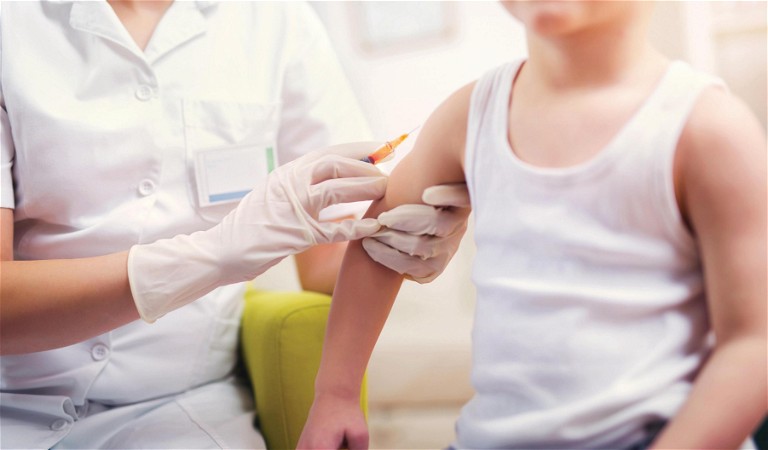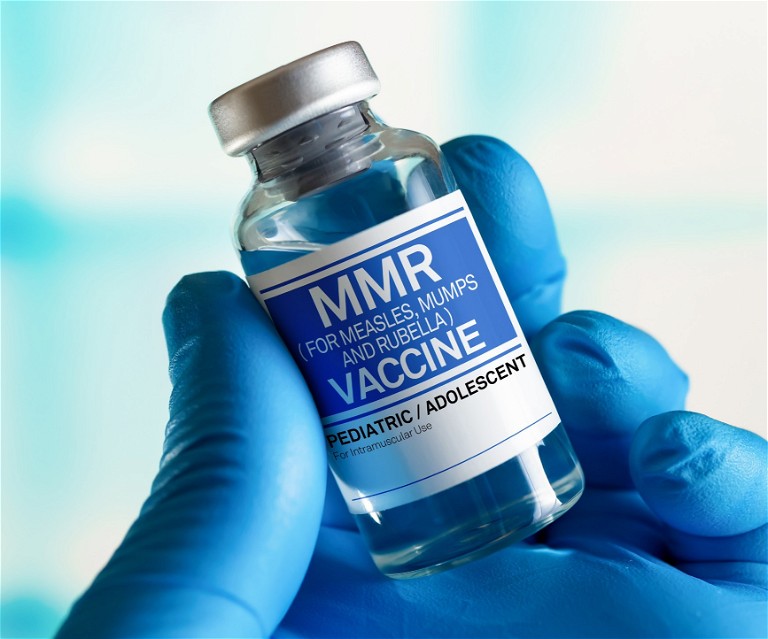Industry Insight
Measles: the UK’s next epidemic?
Betsy Goodfellow from Pharmafocus considers the current rise of measles cases in the UK and the measures that should be taken to prevent further infections

Recently, the UK has seen a rapid increase in the number of cases of measles, along with a drop in vaccination levels. Although the cases are generally localised to a few areas within the UK, when combined with the prevalent lack of vaccinations, this increase is a cause for concern, leaving many people vulnerable to this potentially fatal disease.
Measles is highly infectious, spreads very easily and can result in serious complications in some cases.1 Symptoms of measles range from those similar to a cold – such as a high temperature, a runny or blocked nose, sneezing, a cough, and red, sore and watery eyes – to small white spots inside the cheeks and on the back of the lips, and a rash that usually appears a few days after the cold-like symptoms appear.1 The rash often starts on the face and spreads to the rest of the patient’s body and the spots are sometimes raised, joining together to form ‘blotchy patches’, however the rash is not usually itchy.1 On white skin, the rash appears brown or red, however it can be harder to see on brown or black skin, so it is important to be aware of the other symptoms of the disease.1
Measles can lead to serious complications in some people, usually those with weakened immune systems or babies, and the complications can include pneumonia, meningitis, blindness and seizures.1 While the disease can sometimes become fatal, between 2000 and 2022, only 23 children and adults died in England and Wales due to measles or related infections.2
In 2023, England and Wales saw a marked increase in infection rates, with 1,603 suspected cases of measles being reported, up from 735 in 2022 and just 360 in 2021, according to the UK Health Security Agency (UKHSA). In one month alone, England had 166 infections, with 56 reported in one week, illustrating the rising rate of infection.2,3 The World Health Organization (WHO) reported an ‘alarming’ 45-fold increase in measles cases across Europe in 2023, with over 42,000 reported cases, compared to only 941 in 2022.2 This year-on-year increase in cases suggests a wider issue, rather than just a localised epidemic in the UK.
So why has there been a drop in vaccination levels? Factors could include missed appointments during the COVID-19 pandemic, appointments being rescheduled or missed during the ongoing NHS strikes or due to the NHS appointment backlog.
The recently reported cases in the UK have appeared in geographical clusters, with approximately half occuring in the West Midlands, predominantly in Birmingham.3 Other areas with rising cases include London, the North West, Yorkshire and the Humber, and the East Midlands.3 Local health services in these areas have reported taking various measures to help prevent the disease from spreading further – this has ranged from Birmingham Children’s Hospital isolating measles patients to stop it from spreading on its wards to pop-up measles, mumps and rubella (MMR) vaccine clinics being established across the Black Country, offering the jab to children aged 12 to 16 who have not yet received two doses.4,5
Measles, mumps and rubella (German measles) are all highly contagious and can spread very easily between unvaccinated individuals.6 Usually, the first dose of this vaccine is given when an infant is a year old, followed by a second dose at three years and four months, however anyone who has not received both doses should speak to their GP to book a vaccine appointment.6 The vaccine is 99% effective in protecting against measles and rubella, and 88% effective at protecting against mumps, although those who are infected with mumps after being vaccinated are less likely to have serious complications or need to be admitted to hospital.6

There is a clear need for higher vaccination rates that would significantly lower the current rising levels of infection in the UK. In 2022-23, approximately 85% of children in England had received two doses of the MMR vaccine by their fifth birthday, marking the lowest vaccination level since 2010-11.3 The UK government and the UKHSA have urged parents to vaccinate their children, as the MMR vaccine is the ‘best way for parents to protect their children from measles’.7 Other factors that may have contributed to the lower vaccination rate could include the rise of ‘anti-vax’ views and attitudes that gained some attention during the COVID-19 pandemic. A survey for the Center for Countering Digital Hate (CCDH) demonstrated that approximately 16% of people were unlikely to, or certain not to, get a COVID-19 vaccine, with the WHO stating that ‘without the appropriate trust, immunisation campaigns will not meet their targets’.8
“ There is a clear need for higher vaccination rates that would significantly lower the current rising levels of infection in the UK ”
Professor Dame Parveen Kumar, chair of the BMA’s board of science, echoes these concerns: “We need to act quickly and firmly against these narratives, and we need to tell people the truth: that immunisation is good for you. If you’re offered a vaccination, take it. We have to get the world vaccinated: this is a major pandemic.”8
Although COVID-19 has placed the spotlight on vaccines and the anti-vax movement, these unprecedented views long predate the pandemic, with former doctor Andrew Wakefield sowing the seed of doubt around the MMR vaccine in 1998 with his unproven hypothesis that the vaccine was linked to autism.9
In 2002, the WHO released an extract from a report from its Global Advisory Committee on Vaccine Safety (GACVS) that ‘concluded that no evidence exists of causal association between MMR vaccine and autism or autistic disorders’.10 That being said, these beliefs unfortunately still persist and continue to have an impact on MMR vaccine uptake.
Wakefield has since been disproven and disbarred from practising medicine, however the impact of his hypothesis remains.9 Due to this belief being prevalent in the late 1990s and early 2000s, many young adults are unvaccinated and have not had both doses of the MMR jab, so it is important for those in this age group to get vaccinated now.
References
- Visit: nhs.uk/conditions/measles/
- Visit: bbc.co.uk/news/uk-englandbirmingham-68007804
- Visit: bbc.co.uk/news/health-68305511
- Visit: bbc.co.uk/news/uk-englandbirmingham-68058328
- Visit: bbc.co.uk/news/articles/c25y58ed4w7o
- Visit: nhs.uk/conditions/vaccinations/mmrvaccine/
- Visit: gov.uk/government/news/measlesoutbreak-could-spread-warns-ukhsa-chiefexecutive
- Visit: bma.org.uk/news-and-opinion/pushing-back-tackling-the-anti-vaxmovement
- Visit: theguardian.com/society/2019/mar/04/no-link-between-autism-and-mmraffirms-major-study?source=post_page
- Visit: who.int/groups/global-advisory-committee-on-vaccine-safety/topics/mmr-